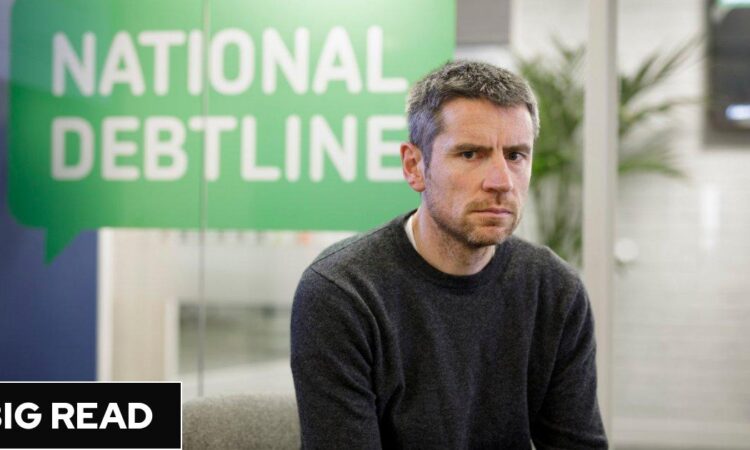
While mortgages involve loans of hundreds of thousands of pounds, bills for online “Buy Now, Pay Later” deals are usually no more than three figures. Nevertheless, they are a growing source of stress among callers, says Dennis – particularly as research shows they lure in borrowers who are already in financial difficulty.
More than a quarter of UK adults, about 14 million people, used BNPL at least once in the six months up to January 2023. Yet the unsecured loans offered by these companies, such as Klarna, Clearpay, Laybuy and Openday, are not policed by the Financial Conduct Authority.
Dennis is frustrated that BNPL options are prominently advertised on plenty of big online stores, but what customers owe is not always so obvious while they’re making a purchase or afterwards.
Dennis explains: “We ask people: ‘Do you know how much that’s going to be costing you when it kicks in?’ They say: ‘No I don’t, not right now, but they sent me some emails with the payment schedule.’ The fact that it’s not immediately visible to that person is not ideal. If they don’t want to think about it, they can leave it hidden inside a PDF document or an online portal until direct debits are actually due.”
The Treasury maintains that it plans to publish a response to its consultation on proposed legislation. Klarna has said it agrees the market “should be regulated so that consumers have clear information, are protected from bad actors and have continued access to zero-cost credit”, and Laybuy says it hopes to “appropriate” rules to bring about “higher standards”.
But David is frustrated that the process is taking so long. He says: “It’s really important that there are affordability assessments and checks to make sure that people can pay back what they’re committing to – and that there’s more protection in place, through things like the Financial Ombudsman Service, if things do go wrong.”
If the staff at National Debtline have one message for people who are worried about a black hole in finances, it’s to seek advice and contact their lenders as soon as possible, before things become more serious.
Linda can take some solace that she has done just that. Even while still in pain from her illness, she called her loan providers and her bank, asking to delay direct debits until her next wage came in. She also sought help from a charitable fund which might be able to pay off her energy bill with a donation.
The personal cost is still high, though. She may have to put her divorce on hold, a long way into the process, while she’s unable to pay thousands in fees.
Like so many others, Linda will probably be thinking about her bank account when she makes a New Year’s Resolution. But experts think it’s politicians who’ll need more resolve if the population’s household debt is to be brought under control.
*Name changed to protect identity
National Debtline advisers are available 9am to 8pm, Monday to Friday, and 9:30am to 1pm on Saturdays, on 0808 808 4000 or via a webchat






